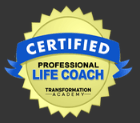Judgement versus Discernment: Can You Be a Good Judge?
As a child and teenager, I heard my parents and friends say that I’d be a good judge more than once; even a high-school career advisor said it. I think my mother is still sad that I never decided to pursue a Law degree (though there’s a lot of it in International Relations, the one I took first). :)
As an adult, what I learned is that being a good judge of people is not really about judgment but rather about discernment.
What’s the difference?

Photo by Towfiqu barbhuiya: https://www.pexels.com/photo/brown-gavel-8693379/
“You either do it my way or the wrong way”. Let’s be honest: that’s how most of us think. We assess how others do against our own criteria and then give them a pass or fail grade.
Even when we try to use some more external and objective criteria (as I often attempt when I am grading my Master students, for example), we all have our own manner of judging how well a criterion is met or not. So, whether we are the ones setting up the criteria and measuring others against it or just one of these, we tend to look at the world according to our own experience, values, and beliefs. That’s quite a lot of baggage. Our own personal baggage.
When you become an expat, whether you like it or not, you are forced to start realising that there is more than one way to look at the world and to do things. But you don’t even need to cross borders to start learning this crucial life lesson; changing jobs or working with a new team might be enough -- just watch out for the fact that, when we can, we will feel more attracted to those who think (and look) like us (hence, there is a smaller chance to learn this lesson from existing friends, partners or family).
We all have our own inner judge and saboteurs, but how strong are they? Do they run the show and generally decide what you do in a specific situation based on their (very likely biased) judgment, or do you rely instead on your wiser self and its discernment to guide you in a healthier way?
So, let's start clarifying some things. Judgment refers to forming an opinion or conclusion about something or someone. It often carries a connotation of making a decision based on one's values, beliefs, or biases, and it can be either positive or negative.
Discernment, on the other hand, is about your ability to perceive and understand things clearly and objectively, often involving a level of insight and wisdom. That means carefully evaluating a situation or making informed decisions without immediately passing judgment based on our own biases or preconceived notions about whether the results imply anything about the person and whether they are good or bad, whether the action was right or wrong. You look at the ‘facts’, weigh them, and share your conclusions, but you make no moral or ethical judgements based on them.
How does it work exactly?
Here are some real-life examples of the differences between these two approaches, namely some that an expat could easily find:
Choosing a Neighbourhood to Live In
Judgment: You might hear that a certain neighbourhood is unsafe and decide not to consider it for living, based solely on that information, without visiting or researching further.
Discernment: You visit various neighbourhoods, talk to locals, research crime statistics, and consider your personal safety needs before deciding where to live.
Interpreting Cultural Differences in the Workplace
Judgment: As an expat, you might see a local colleague's behaviour as rude or inefficient based on your own cultural norms and form a negative opinion about that colleague.
Discernment: You take the time to understand the cultural context behind the behaviour, recognize that it is a different but valid way of operating, and adapt your expectations and interactions accordingly.
Evaluating Social Invitations
Judgment: An expat might decline a social invitation because it doesn't align with their usual preferences or because they assume it will not be enjoyable without trying it out.
Discernment: You consider the potential for new experiences and connections, evaluate your own openness to new activities, and make an informed decision on whether to accept the invitation.
Of course, some situations and actions are wrong or bad (and then there is the Law, the rules we have socially accepted to follow at least in democracies and rule-of-law countries), but so much depends on context, personality, culture, education, etc…
Do you really want to judge another person so quickly?
I still struggle a lot with my value of efficiency (among my top 5 core values) and how I measure others according to my own criteria for it. Discussions have been had about what's the best way to do the dishes and how much toilet paper is really necessary to use ;D I've come to the realisation that I really need to remain much more flexible about how others CHOOSE to do their things. Still, at my place, it's my way or out of the way ;) Hey, I'm not perfect...
In short, judgment and discernment are closely related concepts that, however, carry important differences in their nuances and applications. Judgment tends to be more immediate and often influenced by pre-existing biases, while discernment involves a deeper, more thoughtful process of understanding and evaluating information before making a decision.
So, the next time you have a challenging encounter with someone, before you pass judgment, try to use your discernment. It might well just be enough and lead to a more productive result and relationship!
Follow me on Social Media:
Related Articles
Want tips, reflections & challenges for success and happiness?
Subscribe to the not-too-regular Seeds for Growth & Joy newsletters and stay engaged with tips, challenges, upcoming events and news.
Natália Leal | Coach & Trainer
Empowering Global Leaders and International Professionals to Upgrade Their Life & Career Abroad
Company no./KvK: 72490772
VAT/BTW-id: NL002528132B78
contact[at]natalia-leal.com
Pages
Services
Courses and Events
Copyright © Natália Leal, 2018-2026













